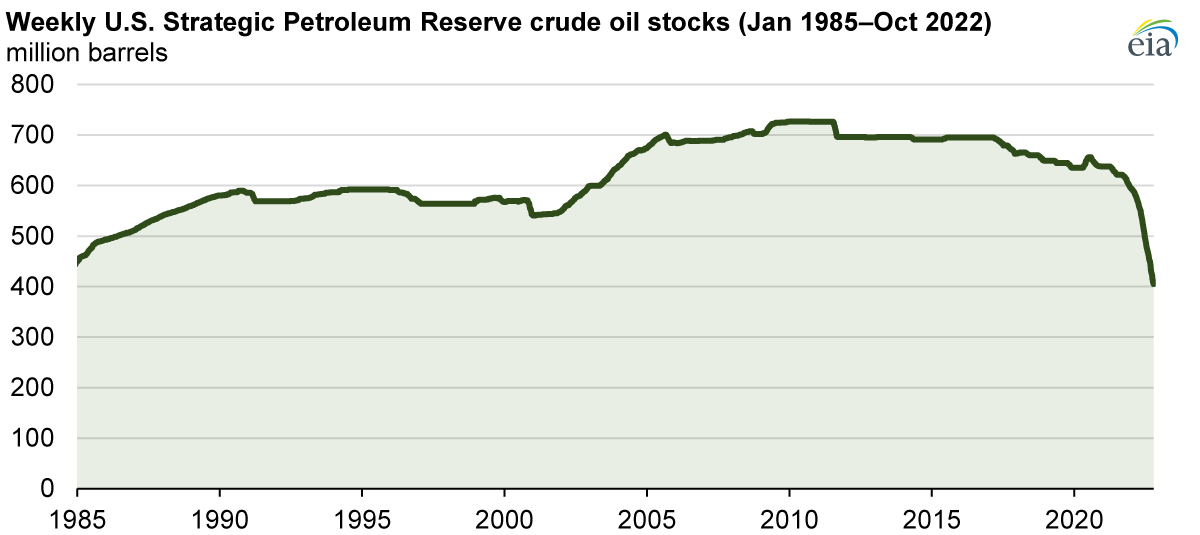
The U.S. Department of Energy (DOE) announced a notice of sale of as much as 15 million barrels of crude oil from the Strategic Petroleum Reserve (SPR) on October 18, 2022, to help address the market supply disruption caused by Russia’s full-scale invasion of Ukraine and to help lower energy costs. The sale was held on October 19, 2022, for delivery in December 2022. This sale will complete the 180 million barrel sale of crude oil from the SPR that President Biden announced in the spring of 2022 and is part of a larger effort to ensure an adequate supply of petroleum in response to Russia’s full-scale invasion of Ukraine.
The SPR was established in the 1970s to reduce the effects of unexpected oil supply reductions. The reserve was designed to hold up to 714 million barrels of crude oil across four storage sites along the Gulf of Mexico, where much of the U.S. petroleum refining capacity is located. One of the SPR’s core missions is to hold enough oil stocks to fulfill U.S. obligations under the International Energy Program, the 1974 treaty that established the International Energy Agency (IEA).
We survey SPR inventory levels each week in our Weekly Petroleum Status Report. On October 14, 2022, the SPR held 405 million barrels of crude oil, the lowest inventory level the SPR has held since June 1984. SPR crude oil stocks have been declining in recent years, largely because of legislated drawdowns authorized in bills passed in previous years.
On October 18, the DOE finalized a rule laying out how it plans to replenish the SPR. The rule allows fixed-price purchases of crude oil when the price of West Texas Intermediate (WTI) crude oil is at or below about $67 to $72 per barrel.
Crude oil can be released from the SPR under four conditions: emergency drawdowns, test sales, exchange agreements, and nonemergency sales. This announced sale is part of the emergency drawdown announced earlier this year. Before 2022, the most recent emergency sale was in 2011, when IEA members collectively released 60 million barrels in response to disruptions in Libya.
Test sales are relatively rare: the most recent test sale occurred in 2014. In contrast, the SPR has released crude oil under exchange agreements 13 times since 1996, most recently after Hurricane Ida in September 2021. In these exchange agreements, crude oil is released to private companies and repaid in kind by specified dates with additional barrels, similar to monetary interest on a loan.
Congress has also authorized nonemergency sales of SPR crude oil to respond to lesser supply disruptions or to raise revenue for the U.S. Treasury. For example, the Fixing America’s Surface Transportation Act, passed in 2015, and the Bipartisan Budget Act of 2018 collectively call for the sale of more than 160 million barrels of crude oil from the SPR in fiscal years 2022 through 2027.
Principal contributor: Kimberly Peterson









